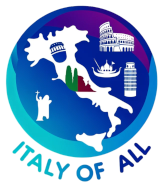The province of Genoa, nestled in the Liguria region of northwestern Italy, is known for its rugged coastal beauty, rich maritime history, and vibrant cultural life. As the capital of the region, the city of Genoa itself has been a significant port city on the Mediterranean Sea, famously known as La Superba (“the proud one”) due to its illustrious past and impressive landmarks.
Geographically, Genoa is characterized by its dramatic coastline along the Ligurian Sea, backed by steep mountains that rise almost immediately behind the narrow coastal strip. This topography creates a picturesque but challenging landscape for urban development, leading to the distinctive appearance of the city, with colorful buildings packed tightly together on the hillsides overlooking the sea.
Historically, Genoa has a storied past as a powerful maritime republic, known for its naval prowess and extensive trade networks throughout the Mediterranean and beyond during the Middle Ages and Renaissance. This rich history is reflected in the city’s architecture, including the intricate network of narrow streets in the old town, the Renaissance palaces of Via Garibaldi (a UNESCO World Heritage Site), and the ancient harbor fortified by the iconic Lanterna lighthouse.
Culturally, Genoa is a center of art, music, and literature, with a strong tradition of opera and theater. The city has been home to several famous figures, including Christopher Columbus, Niccolò Paganini, and Giuseppe Mazzini. Genoa’s cultural scene is vibrant with numerous museums, art galleries, and theaters, such as the Carlo Felice Theater and the modern Museum of the Sea (Galata Museo del Mare), which showcases the city’s maritime traditions.
Cuisine in Genoa is renowned for its rich and varied flavors, with an emphasis on seafood and fresh ingredients from the region. The city is the birthplace of pesto, a sauce made from basil, garlic, pine nuts, Parmesan cheese, and olive oil, typically served with pasta. Other local specialties include focaccia, a type of flat oven-baked bread, and farinata, a thin, crispy pancake made from chickpea flour.
Economically, Genoa remains a major port in Italy, crucial for both commercial and passenger services, including significant freight operations and cruise ship activities. The city’s economy also benefits from heavy industries such as steel manufacturing and shipbuilding, as well as from a growing sector in high technology, finance, and services. In recent years, there has been a concerted effort to revitalize the old port area, transforming it into a recreational and cultural hub with museums, shopping centers, and entertainment facilities.
Despite facing challenges such as economic shifts and the need to modernize infrastructure, Genoa continues to leverage its historical and cultural assets to enhance its appeal as a global city. Efforts to promote tourism, preserve its architectural heritage, and foster sustainable urban development are key components of the city’s strategy for future growth.
Overall, the province of Genoa offers a compelling mix of natural beauty, historical depth, and vibrant cultural life. Its ongoing initiatives to balance economic development with environmental sustainability and cultural preservation ensure its continued prominence in Italy’s cultural and economic landscape.
Comuni in Genoa Province:
- Bargagli
- Borzonasca
- Bogliasco
- Casarza Ligure
- Campo Ligure
- Camogli
- Carasco
- Castiglione Chiavarese
- Busalla
- Campomorone
- Cicagna
- Chiavari
- Cogoleto
- Ceranesi
- Cogorno
- Fontanigorda
- Crocefieschi
- Coreglia Ligure
- Davagna
- Favale di Malvaro
- Lorsica
- Mele
- Isola del Cantone
- Masone
- LulaLumarzo
- ** Genoa
- GoroGorreto
- Lavagna
- Leivi
- Montoggio
- Orero, Liguria
- Mezzanego
- Mocònesi
- Neirone
- Moneglia
- Montebruno
- Mignanego
- Rovegno
- Rezzoaglio
- Portofino
- Propata
- Recco
- Pieve Ligure
- Rossiglione
- Rapallo
- Ronco Scrivia
- Sant’Olcese
- Santa Margherita Ligure
- Serra Riccò
- SoriSorianello
- Santo Stefano d’Aveto
- Sestri Levante
- Somano
- San Colombano Certénoli
- Savignone
- Val Rezzo
- Uscio
- Vobbia
- Tribogna
- Torriglia
- Zoagli
- Valbrevenna
- Tiglieto
